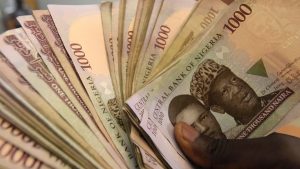
By David Akinmola
Nigeria’s foreign exchange (FX) reserves have surged to $41 billion, marking the highest level in 44 months, amid improved oil receipts, steady crude production, and increased foreign portfolio inflows.
Data obtained from the Central Bank of Nigeria (CBN) on Friday showed that the reserves climbed from $39.6 billion at the end of July to $41 billion as of August 15, representing a $1.4 billion increase in just over two weeks. This milestone puts Nigeria’s reserves at their strongest level since December 2021.
Analysts attribute the rise to a combination of factors, including stronger global oil prices, higher crude production volumes, and renewed investor confidence following recent monetary and fiscal reforms. Brent crude, Nigeria’s main export benchmark, has hovered around $85 per barrel in recent weeks, providing a much-needed boost to government revenue and dollar inflows.
Speaking on the development, a senior official at the CBN who requested anonymity said the increase underscores the success of recent policy measures aimed at stabilizing the naira and attracting capital inflows.
“We have seen a consistent improvement in FX inflows, particularly from oil exports and foreign portfolio investments. The measures to unify the exchange rate and tighten monetary policy have helped restore confidence,” the official said.
Industry observers note that the reserves build-up could strengthen the CBN’s ability to meet legitimate FX demands and intervene in the market to stabilize the naira, which has faced persistent pressure in the parallel market.
However, some economists warn that the sustainability of the reserves depends largely on maintaining oil output and managing external debt obligations. Nigeria’s production has recently averaged about 1.4 million barrels per day, according to OPEC data, still below the 1.8 million bpd quota but an improvement from last year’s lows.
The reserves increase comes at a critical time when the government is pushing for macroeconomic stability amid reforms such as the removal of fuel subsidies and exchange rate unification.
Financial analysts at Afrinvest said in a note to clients:“A stronger reserve position gives the monetary authorities more room to support the naira, boost investor confidence, and moderate inflationary pressures linked to FX volatility.”
With reserves now at $41 billion, market watchers will be keen to see whether the momentum can be sustained through the end of the year, especially as Nigeria gears up for increased debt servicing obligations and imports demand ahead of the festive season.








